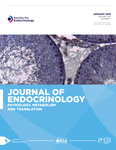Obstetric and neonatal outcomes to recombinant porcine somatotropin administered in the last third of pregnancy to primiparous sows
- María E Trujillo-Ortega,
- Daniel Mota-Rojas1,
- Rafael Hernández-González2,
- Elvia Yadira Velázquez-Armenta3,
- Alejandro A Nava-Ocampo3,
- Ramiro Ramírez-Necoechea1,
- Marcelino Becerril-Herrera4 and
- María Alonso-Spilsbury1
- Department of Animal Production: Swine, Facultad de Medicina Veterinaria y Zootecnia, Universidad Nacional Autónoma de México, México
- 1Department of Animal Production and Agriculture, Research Area: Ecodesarrollo de la Producción Animal, School of Veterinary Medicine, Universidad Autónoma Metropolitana-Xochimilco, México
- 2Departamento de Investigación Experimental y Bioterio, Instituto Nacional de Ciencias Médicas y Nutrición Salvador Zubirán, México
- 3Division of Clinical Pharmacology and Toxicology, The Hospital for Sick Children, 555 University Ave., Toronto, Ontario M5G 1X8, Canada
- 4EIAH-Benemérita Universidad Autónoma de Puebla, San Juan Acateno, Teziutlan, Puebla, México
- (Requests for offprints should be addressed to A A Nava-Ocampo; Email: navaocampo_aa{at}yahoo.com)
Abstract
This study aimed to investigate whether the administration of recombinant porcine somatotropin (rpST) late in gestation is associated with increased rates of obstetric and neonatal complications in primiparous sows. From days 80 to 114 of gestational age, 20 primiparous sows were randomly assigned to receive an intramuscular injection of either saline or 6 mg rpST/day. Throughout pregnancy, sows were fed 2.5 to 3 kg/day of a corn-soybean diet (14 MJ ME/kg). Of 111 piglets born to control sows and 109 piglets born to treated sows, 8.1% and 17.4% piglets respectively died intrapartum (P=0.04). Glucose blood levels in sows and live-born piglets in the rpST-treated group were significantly higher than in their corresponding controls. Birth weight of live-born piglets in the treated group was 1.4 ± 0.1 kg versus 1.3 ± 0.1 kg in the control group (P<0.0001). Birth weight of piglets born dead was also higher in the former than in the latter group (P<0.0001). No evidence of teratogenicity was observed in either of the groups. In conclusion, rpST administration in late pregnancy to primparous sows increased the rate of neonatal deaths and was associated with higher blood glucose levels in both sows and piglets.
- Received in final form 14 March 2006
- Accepted 16 March 2006
- Accepted 31 March 2006
- Made available online as an Accepted Preprint 31 March 2006
- © 2006 Society for Endocrinology














